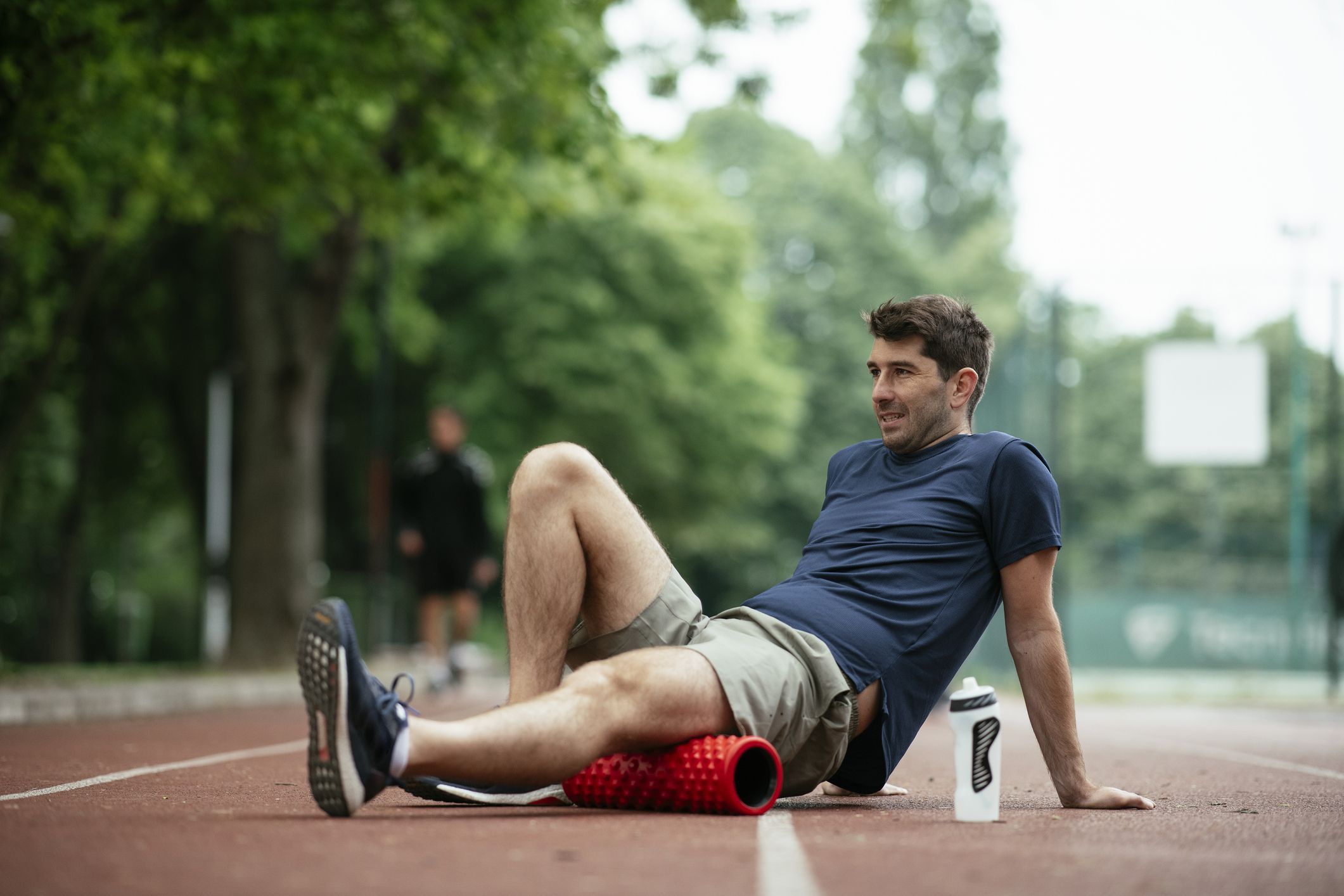

Featured
Should I Workout When Sick
Modified: January 2, 2024
Discover whether it's safe to workout when feeling under the weather. Read our featured article to learn the best practices for exercising during illness.
Introduction
Sometimes, when you wake up feeling under the weather, the last thing on your mind is hitting the gym or going for a run. After all, your body is telling you to rest and recover. But then a thought creeps in: should you workout when you’re sick? It’s a common dilemma that many fitness enthusiasts face.
When it comes to working out while sick, there isn’t a one-size-fits-all answer. It ultimately depends on various factors, such as the severity of your illness, your overall health, and how your body is feeling. While it’s important to prioritize your health and listen to your body’s signals, there are times when exercising can actually be beneficial.
In this article, we’ll explore the pros and cons of working out when sick, as well as provide guidelines to help you make an informed decision. Keep in mind that it’s always best to consult with a healthcare professional before engaging in any physical activity if you’re feeling unwell.
Importance of Listening to Your Body
Listening to your body is essential when it comes to making decisions about exercising when you’re sick. Your body has an incredible ability to communicate its needs and limitations, and it’s important to pay attention to these signals.
When you’re sick, your body is already working hard to fight off the illness. Engaging in rigorous exercise can put additional strain on your immune system and hinder the recovery process. Ignoring your body’s warning signs and pushing through a workout could potentially worsen your symptoms and prolong your illness.
On the other hand, your body may also send signals that it’s capable of handling some physical activity. Perhaps you have a mild cold and your symptoms are mostly confined to your head, with no fever or body aches. In these cases, gentle exercise might not only be safe, but it could also provide some benefits.
Understanding your body’s limits and being attuned to its needs is crucial. It’s important to differentiate between the fatigue and weakness that often accompany illnesses and the general fatigue associated with a tough workout. If your body is telling you to rest, it’s crucial to listen and give yourself the time to recover.
Remember, no one knows your body better than you do. Trust your instincts and don’t be swayed by external pressures or societal expectations. It’s okay to take a break from your fitness routine when your body needs it. Taking care of your health should always be the top priority.
Benefits of Working Out When Sick
While it’s generally recommended to rest when you’re sick, there are certain situations where working out can have some benefits. It’s important to note that these benefits typically apply to mild illnesses and when you’re experiencing symptoms above the neck, such as a runny nose, sore throat, or mild congestion.
1. Improved mood: Exercise releases endorphins, which are natural mood boosters. Engaging in a light workout can help alleviate stress and anxiety commonly associated with being sick, allowing you to feel a sense of accomplishment and positivity.
2. Enhanced circulation: Gentle exercise can improve blood flow and circulation, which in turn may help deliver essential nutrients and oxygen to your cells, aiding in the healing process.
3. Clearing nasal congestion: A light workout can help alleviate mild nasal congestion by increasing blood flow and promoting mucus movement. Just be sure to stay hydrated during and after your workout to prevent dehydration.
4. Maintaining fitness levels: If you’re in the midst of a regular exercise routine or training for an event, taking a complete break when you’re sick can lead to a decline in fitness. Engaging in light exercise can help you maintain some level of fitness and make it easier to resume your routine once you’re fully recovered.
5. Boosting immune function: Moderate exercise has been shown to improve immune function. However, it’s important to note that intense or prolonged exercise can have the opposite effect and temporarily weaken your immune system. Stick to low-intensity workouts and pay attention to your body’s response.
It’s crucial to emphasize that these benefits are not guaranteed and may not apply to everyone. It’s always best to listen to your body and prioritize rest when needed. If you decide to exercise while sick, be mindful of your limitations and adjust your intensity accordingly.
Drawbacks of Working Out When Sick
While there may be certain benefits to working out when you’re sick, it’s important to consider the potential drawbacks. Pushing your body too hard during illness can have negative consequences and may hinder your recovery process.
1. Increased risk of spreading illness: Exercising in a communal gym or fitness studio can increase the chances of spreading your illness to others. When you’re sick, it’s important to prioritize rest and avoid putting others at risk of getting sick as well.
2. Worsening of symptoms: Exercising when you’re sick can potentially exacerbate your symptoms. Intense physical activity can place additional stress on your body, causing symptoms such as coughing, congestion, or fatigue to become more pronounced.
3. Weakened immune system: Engaging in strenuous exercise while sick can temporarily weaken your immune system. Your body is already fighting off the illness, and pushing it too hard can redirect resources away from the immune response, potentially prolonging your illness.
4. Increased risk of injury: When you’re sick, your body is already in a weakened state, making it more susceptible to injuries. Your muscles may be fatigued, your balance may be affected, and your reflexes may be slower. This can increase the risk of accidents and injuries during exercise.
5. Excessive fatigue and delayed recovery: Intense or prolonged exercise can lead to excessive fatigue, causing your body to take longer to recover. Stressing your body further when it’s already fighting off an illness can interfere with the healing process and extend the duration of your sickness.
It’s important to carefully evaluate the potential drawbacks before deciding to exercise when you’re sick. It’s always best to err on the side of caution and give your body the rest it needs to recover fully.
Determining Whether to Workout or Not
Deciding whether to workout when you’re sick can be challenging. It’s important to assess your symptoms, overall health, and energy levels before making a decision. Here are some factors to consider:
1. Severity of illness: If you have a mild cold with symptoms confined to your head, you may be able to engage in light exercise. However, if you have a fever, body aches, or gastrointestinal symptoms, it’s best to rest and allow your body to recover.
2. Energy levels: Pay attention to your energy levels. If you’re feeling extremely fatigued or weak, it’s a sign that your body needs rest. Pushing through a workout in this state may do more harm than good.
3. Overall health: Consider your overall health and any pre-existing conditions. If you have a weakened immune system, are recovering from an injury, or have a chronic illness, it may be best to avoid exercise until you’re fully recovered.
4. Impact on others: Think about the potential impact on others if you choose to exercise while sick. If you’re planning to work out in a shared space, such as a gym or fitness class, you may risk spreading your illness to others. In this case, it’s best to prioritize rest and avoid putting others at risk.
5. Listen to your body: Ultimately, the best indicator of whether to workout or not is to listen to your body. Your body knows best and will often give you clear signals. If you feel that rest is what you need, honor that and give yourself time to recover.
Remember, it’s always a good idea to consult with a healthcare professional, especially if you’re unsure about your symptoms or have any underlying health concerns. They can provide personalized advice based on your specific situation and help you make an informed decision.
Guidelines for Working Out When Sick
If you’ve considered the factors mentioned earlier and have decided to workout despite being sick, it’s essential to follow certain guidelines to minimize the potential risks and maximize the benefits. Here are some guidelines to keep in mind:
1. Scale down the intensity: Opt for low-intensity workouts rather than high-intensity exercises. This may include light cardio exercises, stretching, or gentle yoga. Avoid activities that put excessive strain on your body or require significant energy expenditure.
2. Shorten the duration: Shorten your workout duration compared to what you would typically do. Aim for shorter, more manageable sessions to avoid overexertion. Listen to your body throughout the workout and stop if you feel overly fatigued or experience any worsening of symptoms.
3. Stay hydrated: It’s important to stay hydrated, especially when you’re sick. Drink plenty of fluids before, during, and after your workout to prevent dehydration. Water, herbal teas, and electrolyte-rich drinks can help replenish fluids and support your immune system.
4. Practice good hygiene: If you decide to visit a public gym or workout in a shared space, take extra precautions to prevent the spread of germs. Wipe down equipment before and after use, wash your hands frequently, and cover your mouth and nose when coughing or sneezing.
5. Monitor your body’s response: Pay close attention to how your body reacts during and after exercise. If you experience any dizziness, chest pain, difficulty breathing, or severe fatigue, stop exercising immediately and seek medical attention if necessary.
6. Get adequate rest: After your workout, make sure to prioritize rest and recovery. Allow your body time to recuperate by getting plenty of sleep and giving yourself downtime. Avoid pushing yourself too hard or engaging in additional strenuous activities.
Remember, these guidelines are intended for mild illnesses and when symptoms are above the neck. If your symptoms worsen or you’re unsure about exercising, it’s best to consult with a healthcare professional. They can offer personalized advice based on your specific condition and help you make the right decision for your health.
Common Illnesses and Their Impact on Workouts
When it comes to deciding whether to work out when sick, it’s helpful to understand how certain common illnesses can impact your workouts. Here’s a look at how some prevalent illnesses can affect your exercise routine:
1. Common Cold: The common cold typically presents with symptoms like a runny or stuffy nose, sore throat, and mild fatigue. In most cases, it’s safe to engage in light exercise, as long as your symptoms are above the neck. However, be mindful of your energy levels and adjust the intensity and duration of your workout accordingly.
2. Flu: The flu is a more severe respiratory illness that often comes with fever, body aches, fatigue, and coughing. When you have the flu, it’s best to prioritize rest and avoid exercising. Engaging in physical activity can potentially worsen your symptoms and prolong your recovery time.
3. Gastrointestinal Infections: Illnesses like stomach flu or food poisoning can cause symptoms such as nausea, vomiting, diarrhea, and abdominal pain. In these cases, it’s important to focus on hydration and rest rather than exercising. Intense physical activity can further disturb your digestive system and prolong your recovery.
4. Respiratory Infections: Respiratory infections like bronchitis or pneumonia can lead to significant coughing, chest congestion, and difficulties breathing. When you have a respiratory infection, it’s crucial to avoid exercise, especially activities that may put strain on your lungs. Engaging in vigorous workouts can delay your healing process and potentially worsen your symptoms.
5. Fever: When you have a fever, your body is already working hard to fight off an infection. Exercising with a fever can raise your body temperature even further and potentially cause dehydration and fatigue. It’s best to give your body the rest it needs and avoid physical activity until your fever subsides.
Always listen to your body and use common sense when deciding whether to exercise when you’re sick. If you’re unsure or experiencing severe symptoms, consult with a healthcare professional to get advice tailored to your specific condition.
Conclusion
Deciding whether to workout when you’re sick is a personal choice that depends on various factors. While there may be some benefits to exercising when you have a mild illness, it’s important to prioritize your health and listen to your body’s signals.
Remember, rest is often the best medicine when you’re sick. It allows your body to focus on fighting off the infection and promotes a faster recovery. Pushing yourself too hard with intense exercise can potentially worsen your symptoms, prolong your illness, and increase the risk of complications.
However, in certain cases, engaging in light exercise may be safe and even beneficial. It can improve your mood, enhance circulation, and help alleviate mild nasal congestion. Just be sure to scale down the intensity, shorten the duration, and closely monitor your body’s response.
Ultimately, it’s important to evaluate your symptoms, overall health, and energy levels before making a decision. Consulting with a healthcare professional can provide valuable guidance based on your specific condition.
Remember, your health and well-being should always come first. Take the time to rest and recover when you’re sick, and once you’re fully healed, you can get back to your regular exercise routine feeling stronger and more energized than ever.









